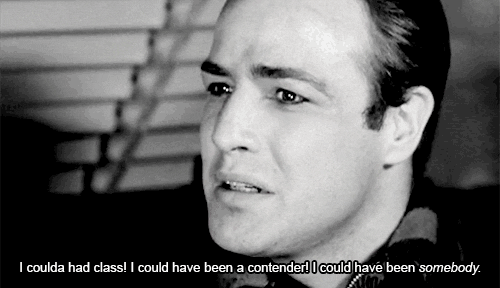Brought to you by HSE Quit.
The simplest way to improve your game.
They say that sport is all about fine margins. Yet it’s amazing how many people play sport and still smoke.
You might play for your local club, enjoy a bit of five-a-side with your mates, or go to the gym to stay fit. Whatever you do, smoking will only hold you back.
We all know someone who stinks of cigarettes when they rock up to training or a match and who’ll spark up straight after the final whistle. And there are always lads who say they aren’t smokers but who’ll scab a couple of cigarettes on a night out.
Anyone who thinks that the odd cigarette on a night out isn’t doing them any harm is fooling themselves. Likewise, if you think that you’re not a smoker because you don’t smoke every day. Just a couple of cigarettes can have a negative impact on heart health and it’s only marginally less harmful than smoking a pack a day.
Ignoring the obvious health risks, there are plenty of sporting reasons to ditch the smokes and cut out that “social” cigarette.
Nobody will be entirely surprised to hear that smoking can inhibit your performance levels. It’s hardly a newsflash. That breathlessness you experience at training should be setting off a few alarm bells. Here’s what smoking is doing to your ability to play sport.
How does smoking affect your lung capacity?
If you quit cigarettes, your lung capacity will increase by up to 30% within two to three months. Having lungs that operate at 70% capacity is one hell of a handicap. Even Messi would struggle to compete at 70% and you probably aren’t Messi.
The encouraging thing is that your lungs can bounce back quicker than you think once you quit. Within 72 hours, your breathing will improve and your energy levels will increase. Just two weeks after you quit, you should start feeling fitter and will be able to exercise for longer. Think of it as a legal performance enhancement.
Why is lung capacity so important?
You know that burning sensation you get in your chest at the end of the game or when you’re trying to push yourself on the final straight? That’ll be the smoking. Smoking prevents oxygen getting to your brain, heart and muscles. So athletes who smoke have less endurance and strength than non-smokers. They also have a greater chance of injury.
Your breathing gets deeper and heavier during exercise to meet the metabolic demands that come with physical exercise. Carbon dioxide is a byproduct of this activity and this is released during exhalation.
So your lungs act as a power battery during exercise, helping to pump oxygenated blood around your body and getting rid of the carbon dioxide that’s a byproduct of all this exertion. The greater your lung capacity, the more oxygen you can pump. That’s vital to maintain your energy levels.
If you play a team sport, you always want to give your best for the rest of the team. Now imagine you had an extra 30% to draw on. That’s the kind of handicap you’re giving yourself if you still smoke. If you do a solo sport, you’re effectively cheating yourself. It may seem like nothing more than a bad habit but it’s eating into your potential.

What can you do to improve your lung capacity?
The obvious thing is to quit smoking. That’s the key to success. Once you’ve ditched the smokes, there are ways to kickstart the healing and increase your lung capacity.
Cardiovascular exercise like running or cycling helps you to heal your lungs and increase capacity. Swimming is the best workout for your lungs so it’s a perfect way to get back on track.
Yoga can also help. The yogic breathing exercises can stretch lungs and improve lung capacity. Or you could just try breathing exercises if you don’t fancy all that stretching and “om”ing.
Learning a brass or wind instrument can also help. It’s an unlikely way to improve your sporting prowess but it can exercise, and therefore improve, your lungs. Who knows? Swapping the cigs for a sax could be just what you need to take you to the next level!
Getting support to help you quit will make you twice as likely to quit for good. Just like in sport, pulling together and working as a team can be the difference between a win and a loss when it comes to kicking the habit.
Many people decide to go it alone when it comes to quitting. However, you are four times more likely to quit for good if you combine Champix (available on prescription) and nicotine replacement therapy with the HSE’s free personalised QUIT advice, tips and support (available face to face through a wide variety of smoking cessation clinics or groups, by phone and online).
Just like in sport, pulling together and working as a team can be the difference between a win and a loss when it comes to kicking the habit. Check out the website today, freephone QUIT at 1800201203 or freetext QUIT to 50100.
Brought to you by HSE Quit.











































